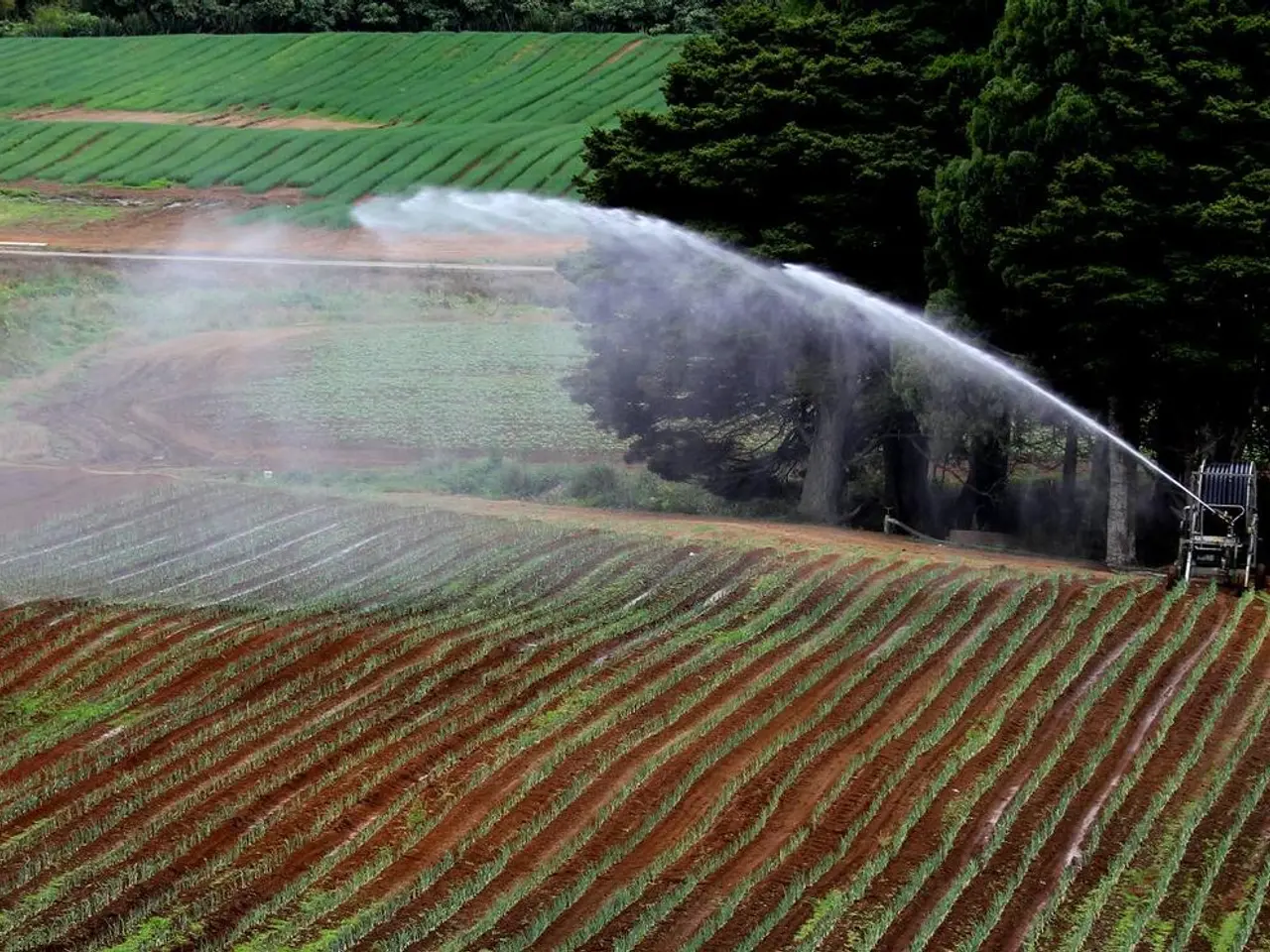Border Tensions Intensify in Görlitz Between Germany and Poland
In a move that is causing ripples across the border, Poland has reinstated border controls at its German frontier, effective from July 7, 2025 [1][3][5]. The decision, aimed at addressing increasing migratory pressures and changes in German asylum policies, has resulted in notable challenges for commuters and businesses in Saxony, Germany.
The border checks are expected to cause delays and increased wait times for cross-border commuters, who frequently travel for work or business. The slowdown of the previously freer movement of people and goods is already causing disruptions to trade and business operations that depend on timely cross-border transport [3].
Daniela Kolbe, deputy chairwoman of DGB Saxony, has criticized the border controls, stating that they are causing delays for commuters and truck drivers, affecting the supply chains [2]. The delays and added procedural layers are also causing police officers to pile up overtime, potentially creating further complications.
Saxony, a region that relies on an open Europe, uncomplicated trade across borders, and a functioning daily life in the border regions, is particularly affected by these controls. With cross-border traffic being vital for the people and economy of the region, the border controls are an additional burden for commuters and businesses operating across the border [4].
The Polish authorities describe the decision as a "concrete and responsible decision" to protect security, but they acknowledge the negative consequences it may have for Polish citizens and presumably also affect German border regions like Saxony due to their close economic ties [3].
While no detailed economic data or specific quantitative impacts on Saxony business have been provided yet, the broader context indicates that the controls are a direct response to geopolitical and migration factors. Their effect on local economies hinges largely on the duration and strictness of the controls.
The German government, including Chancellor Friedrich Merz, is engaged in talks with Poland to manage the situation collaboratively [5]. DGB Saxony, on the other hand, has called for cross-border talks to resolve the situation and mitigate the operational delays and uncertainty for commuters and businesses in Saxony.
References: [1] Deutsche Welle (2023). Poland reinstates border controls with Germany. [online] Available at: https://www.dw.com/en/poland-reinstates-border-controls-with-germany/a-61587869 [2] RBB (2023). DGB-Saxony demands cross-border talks to end the border control situation. [online] Available at: https://www.rbb24.de/politik/dgb-sachsen-fordert-grenzkontrollgesprache-um-die-grenzkontrollsituation-zu-beenden-a-11291293 [3] Tagesspiegel (2023). Poland reintroduces border controls at its border with Germany. [online] Available at: https://www.tagesspiegel.de/politik/polen-reinsetzt-grenzkontrollen-an-der-grenze-zu-deutschland/28631564.html [4] Saxon State Ministry of Economics (2023). Statement on the reintroduction of border controls by Poland. [online] Available at: https://www.wirtschaft.sachsen.de/presse/pressemeldungen/2023/06/20/statement-zum-wiederaufnahme-der-grenzkontrollen-von-polen.html [5] German Federal Government (2023). Talks with Poland regarding border controls. [online] Available at: https://www.bundesregierung.de/breg-de/themen/grenzkontrollen-bei-polen-1010652
The border controls reinstated by Poland are causing delays and increased wait times not only for commuters but also for truck drivers, affecting the supply chains in Saxony. These delays and added procedural layers might also lead to police officers accruing significant overtime, possibly causing further complications.
As a region that thrives on unrestricted trade across borders and a functioning daily life in the border regions, Saxony is particularly impacted by these border controls, with cross-border traffic being crucial for the area's people and economy.








